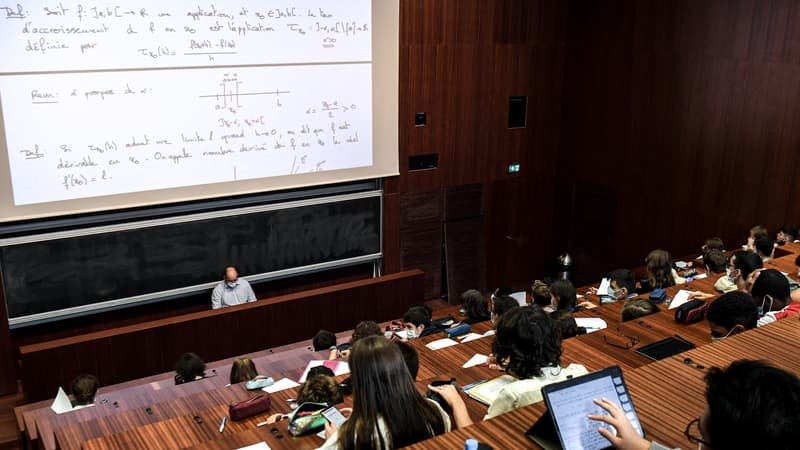Harvard in first place for 22 years and American universities remain at the top of the pack: Shanghai’s ranking published on Tuesday confirms the dominance of American universities and once again has four French establishments in the top 100.
Anglo-Saxon establishments prevail as last year in the top ten: eight American universities (Harvard, Stanford, MIT, Berkeley, Princeton, Columbia, CalTech, Chicago) and two British (Cambridge, Oxford) occupy the top positions in the edition 2023 of this world ranking of the best higher education institutions, prepared since 2003 by the independent firm Shanghai Ranking Consultancy.
4 Parisian universities
Ranked 15th, the French University of Paris-Saclay is the first continental European establishment in the ranking, and gains one place compared to the 2022 edition. France retains a total of four establishments among the 100 best in the world, also with The University of Sciences Letters of Paris (41st place), which brings together several higher education establishments, including the Ecole Normale Supérieure (ENS), the Sorbonne University (46th place) and the University of the City of Paris (68th place ).
“Our universities honor us! Congratulations to the 27 French establishments represented in the prestigious Shanghai ranking. Thank you to all those involved in higher education and research who are building the world of tomorrow”, Prime Minister Elisabeth Terminal reacted in X (ex-Twitter).
The Paris-Saclay ranking “allows France to maintain its 3rd place in the world for the fourth consecutive year, based on the number of establishments in the top 20,” said the Minister of Higher Education and Research in a statement on Tuesday. Sylvie Retailleau also welcomed “the remarkable development of the University of the Côte d’Azur (+200 to reach the 301-400 group)”, as well as “the entry for the first time in the ranking of the ‘University of Poitiers’.
He also noted that the eight French universities ranked in the top 200 have “benefited from funding under the various future investment programmes.”
Nobel and Fields medals
Since 2003, the Shanghai ranking has taken into account six criteria, including the number of Nobel and Fields medals -considered the Nobel Prize in mathematics- among postgraduate students and professors, the number of most cited researchers in their discipline or the number of Publications in Science and Nature magazine. Criteria, fundamentally based on research and not on training, which fuel some of the criticism of this ranking.
As in previous editions, more than 2,500 establishments were examined to establish a ranking of the top 1,000.
Source: BFM TV


